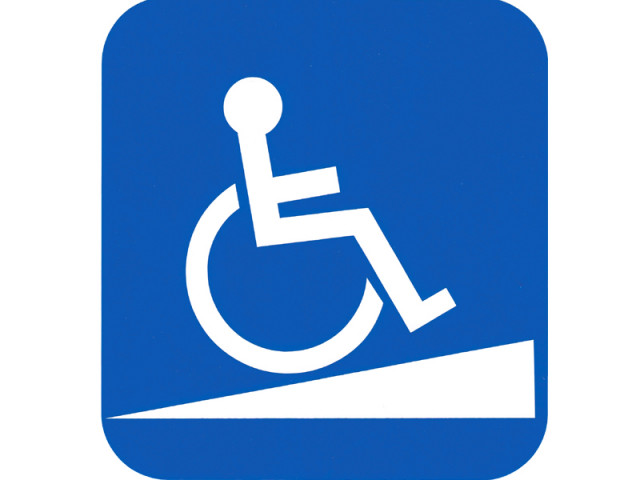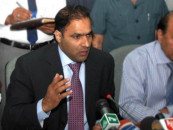Ramp movement: A step forward for the disabled
How a 21-year-old is setting out to make life more mobile for wheelchair users.

“When a physically challenged person is lifted from a wheelchair because there is no other way to facilitate his mobility in the absence of a ramp, I can’t help but think, ‘What a beautiful way to hurt an individual’s self esteem’,” says Tanzeela Khan, 21, a wheelchair user herself.
Khan, a student at the Pakistan Institute of Fashion Design in Lahore, founded the Ramp Movement in September last year after exchanging ideas with young people during a visit to Sri Lanka.
“The basic aim of the movement is to create the realisation that facilities like ramps should be an essential part of any architectural design,” she said. Ramps facilitated the mobility not just of the disabled, but also old people, pregnant women and people with temporary disabilities, she said.
Officially launched on December 3 last year, the nascent “disability rights movement”, as Khan calls it, has so far registered 300 volunteers from across Punjab, most of them from Lahore.
The Movement was launched simultaneously in Sri Lanka and Pakistan. Khan says that the idea gained greater popularity in Sri Lanka owing to a greater general understanding of the issues of physically-challenged people.
Pakistan is a signatory to the United Nations Convention on the Rights of Persons with Disabilities. Khan said that the law did provide protection and facilities for physically-challenged persons, but even government offices were not wheelchair-friendly.
Active in social welfare projects since the age of 14, Khan aims to change society’s mindset. “My story of being ‘disabled’ is not very fascinating unfortunately,” she said. “I was born this way preventing me from being what is termed normal in our society.”
“My passion comes from my disability. I have led an adventurous life and hope to continue doing so,” Khan said. “It’s not the disabled person who is at fault here; it’s the society which just stands by and does nothing,” she said.
Khan is the only person with a disability in the movement’s core committee, which consists of seven members including 25-year-old law student Waqas Irshad Rana. “Disabled people don’t get their rights in our society,” said Rana.
And it isn’t just ramps that are needed to make buildings more friendly to the disabled. “Imagine how you would feel if you know there is a toilet nearby but you cannot go because there is no room for your wheelchair,” he said.
The Ramp Movement recently held a workshop on the rights of the disabled at the end of January at King Edward Medical University, and is to hold two more in April at Punjab University and Kinnaird College. It is also planning a “human rights art festival” including a fashion show for disabled people in May, as well as a TEDx talk.
Published in The Express Tribune, March 22nd, 2012.



















COMMENTS
Comments are moderated and generally will be posted if they are on-topic and not abusive.
For more information, please see our Comments FAQ